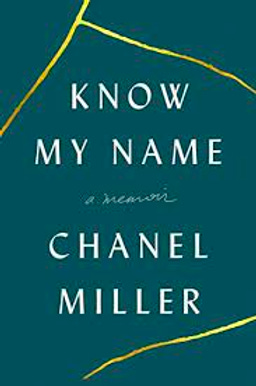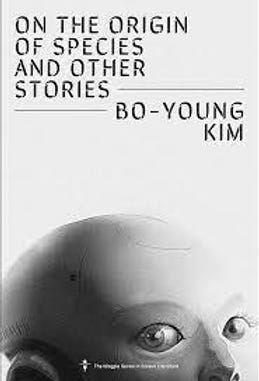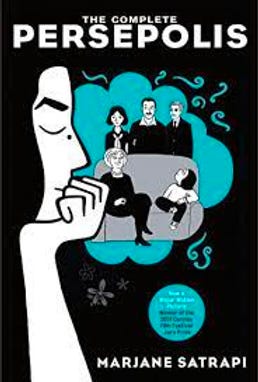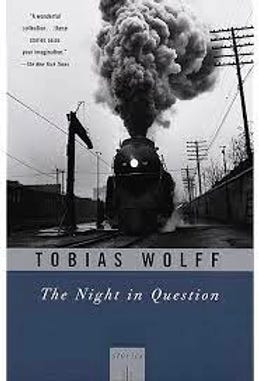My top 5 books of 2022
Originally posted 12/29/2022
I enjoyed meditating on my favorite reads last year because it was re-experiencing why I loved them so much, and I delighted in hearing from friends who also read them. From the 27 books I read this year, I selected (with agony and trials and tribulations) my top 5 favorites of 2022.
As a creature of habit, 2022 was a year of short story collections and sci-fi once again, but it was also a year of discovering the potency of memoirs which are, in my opinion, the perfect grounds to introduce nonfiction writing. While I felt a familiar and immediate pull toward books such as Origin of Species and Parable of the Sower, I was pleasantly blindsided by the heart-wrenching beauty of Know My Name and Persepolis, two books I picked up on a whim.
Feel free to follow my Goodreads account — I love to keep up with what my friends are reading. In order from least to most recently read, and in genres legitimate or entirely made-up, here are my top 5:
1. Know My Name by Chanel Miller
Genre: Memoir, Nonfiction
Favorite quote:
“I survived because I remained soft, because I listened, because I wrote. Because I huddled close to my truth, protected it like a tiny flame in a terrible storm.”
Thoughts:
I’m going to rephrase a random review from Emily May on Goodreads that really sums up how I feel about it: this book was amazing, and not just because this is the memoir of the woman who was sexually assaulted by Brock Turner and was always going to be important. Miller’s writing is immersed in personality, a voice that is not the type of strength I’d imagined to hear before reading — forceful and declarative — but rather a resilience grounded and emboldened by how in touch she is with vulnerability. As one of the book’s main themes, embracing vulnerability is what creates heroes, survivors, and the best storytellers. In addition to her emotional journey, Miller is also chillingly fantastic at describing the frustration of her dehumanizing trials. The critique of injustice does not end with Turner’s sentence but also addresses the “institutional betrayal” of the American justice system, from parallels to victims of police brutality to the public terror surrounding school shootings.
2. Origin of Species by Bo-Young Kim
Genre: Sci-fi, Short stories
Favorite quote:
“Both satellite and star would be named for deities. They would pray to the satellite, they would sing and dance in its soft light, and when the time came for them to turn their gaze to outer space, the satellite would be their first stop. After setting foot on that tiny airless lifeless empty rock they would gather its precious dust in their cupped, spellbound hands.
And they would see stars.”
Thoughts:
The Origin of Species was unlike science fiction I’ve read — unflinchingly absurd, yet deeply curated around the common theme: what makes us human? This underrated collection of stories are translated from Korean and include tales that remind me of Ted Chiang’s whimsical storytelling, though to narrow down Kim’s writing as purely science-fiction would be misleading. Most stories include a surreal and fantastical element — the rapid transmorphisms in “An Evolutionary Myth,” the mythical creatures in “Last of the Wolves,” and the godlike creations in “On the Origin of Species - and What Might Have Happened Thereafter.” As the namesake and longest story, the latter is undoubtedly the standout, but my personal underdog in this collection would be “Stars Shine in the Earth's Sky,” a mini-mystery in the form of a letter, and where I found my favorite quote of all year.
3. Parable of the Sower by Octavia Butler
Genre: Sci-fi, no, Afrofuturism
Favorite quote:
“Prodigy, is, at its essence, adaptability and persistent, positive obsession. Without persistence, what remains is an enthusiasm of the moment. Without adaptability, what remains may be channeled into destructive fanaticism. Without positive obsession, there is nothing at all.”
Thoughts:
Despite being published nearly three decades ago, Butler’s vision of a post-climate-apocalypse is terrifyingly realistic and a warning for what’s to come. Set in 2025, people are clinging onto remnants of civilization after violence, disease, and drugs have ravaged America, an otherwise chaotic world contrasted by protagonist Lauren as she traverses the state to light the way for hope and community. This book exemplifies why I love apocalyptic narratives so much — the despair is not the focus, but rather the backdrop for stories of human strength. Butler brings her talent for subtle character development in carving a groundbreaking vision of afrofuturism, a literary movement that explores the intersection of the African diaspora culture with science and technology, while also doubling as a sacred text.
4. The Complete Persepolis by Marjane Satrapi
Genre: Graphic Novel, Memoir, History
Favorite quote:
(Because its a graphic novel, and the quotes are short, and it’s my blog, I’ll include two —)
“Nothing's worse than saying goodbye. It's a little like dying.”
“I want to be justice, love and the wrath of God all in one.”
Thoughts:
Truly exemplifying the best of both worlds in storytelling, Persepolis is a coming-of-age memoir from author Marjane Satrapi embedded in the historical context of the Iran-Iraq war and the Islamic Revolution. Particularly relevant today, Satrapi encapsulates the political strife, struggles for feminism, and pains of immigration surrounding her while building a personal story that touches on universal trials of life such as a longing for home and the grounding support of family. Not only was it an easy read as one of the best graphic novels I’ve ever picked up, the voice of Satrapi as such an eloquent and empathic “protagonist” often left me stunned and in tears.
5. The Night in Question by Tobias Wolff
Genre: Fiction, Short stories
Favorite quote:
“The bullet is already in the brain; it won’t be outrun forever, or charmed to a halt. In the end it will do its work and leave the troubled skull behind, dragging its comet’s tail of memory and hope and talent and love into the marble hall of commerce.”
Thoughts:
With such simplistic style and seemingly mundane plotlines, I began reading this collection with no idea it would become one of my favorite reads of this year. Despite, or perhaps because of, an oddly neutral tone, the characters of each story become so tangible in less than a few pages, so relatable in how convincingly they lie to themselves. My favorite stories include a soldier dealing with the news of his mother’s passing in “The Other Miller,” a woman’s reimagining of her imperfect marriage in “Lady’s Dream,” and the literal and metaphorical warmth of financial security in “Firelight.” Every story touches on significant aspects life without overdoing it in Wolff’s unassuming prose.
Honorable Mentions:
“There was no one in the world that was ever as critical or could make me feel as hideous as my mother, but there was no one, not even Peter, who ever made me feel as beautiful”
— Michelle Zauner, Crying in H Mart (this might as well have been my #6 pick, but I’m pretty sure everyone and their dog has read it by now).
“If an unearthly love must (for theological reasons) contain a strong dose of the inexplicable and incomprehensible, his earthly love rested on true misunderstanding.”
— Milan Kundera, The Unbearable Lightness of Being
“We believe the one who has power. He is the one who gets to write the story. So when you study history, you must ask yourself, Whose story am I missing? Whose voice was suppressed so that this voice could come forth? Once you have figured that out, you must find that story too. From there you get a clearer, yet still imperfect, picture.”
― Yaa Gyasi, Homegoing
“You will be good to me, won’t you? . . . Because we’re going to have a strange life.”
― Ernest Hemingway, A Farewell to Arms
“A man's at odds to know his mind cause his mind is aught he has to know it with. He can know his heart, but he don’t want to. Rightly so. Best not to look in there.”
― Cormac McCarthy, Blood Meridian
Thanks for reading, and I hope this is helpful for anyone looking to pick up a new book!






